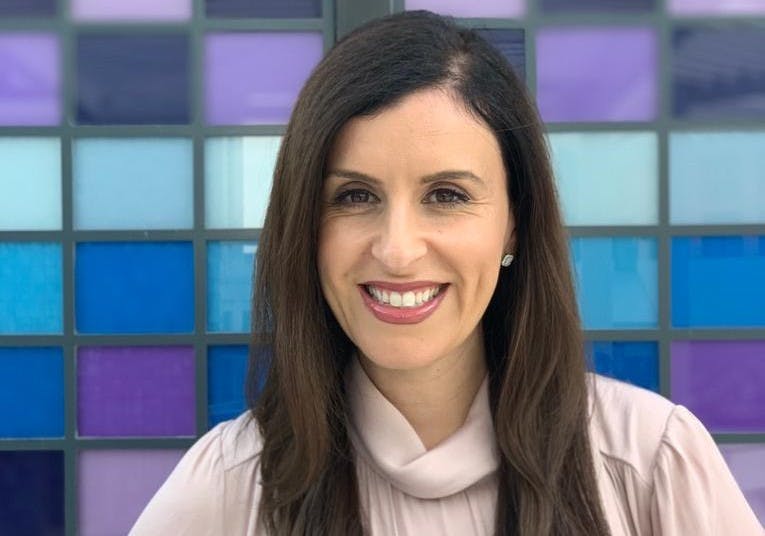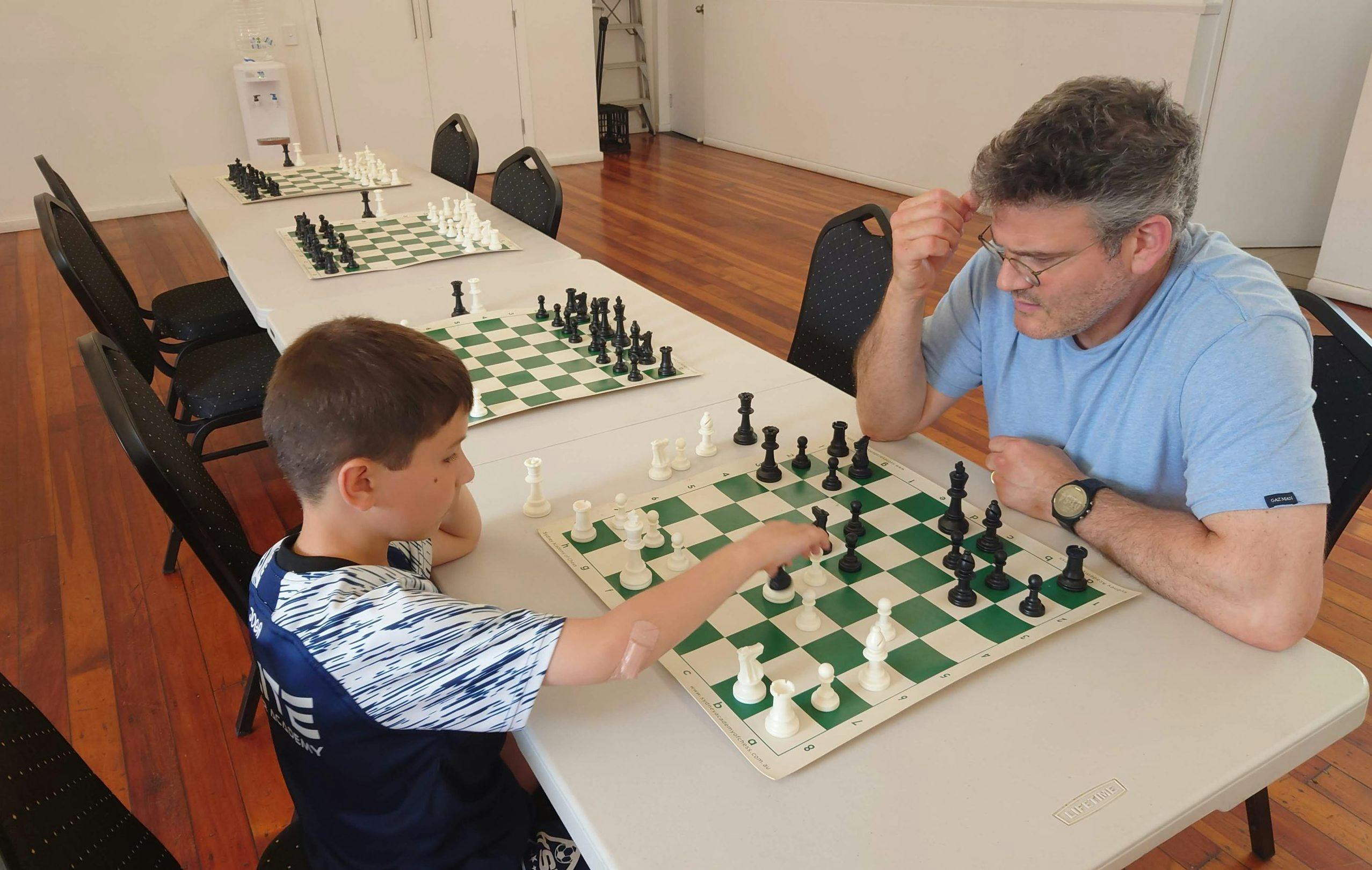Published: 28 March 2019
Last updated: 4 March 2024
Later, as 30 of us clustered around the Gay and Lesbian Holocaust Memorial in Green Park opposite the museum, I realised I was surrounded by spiritual resisters: Congress co-ordinator Kim Gotlieb leading the Mourners Kaddish; Zac Douek, chanting along, who has danced his humanity in ballgowns for 20 years at the front of almost every Dayenu float in Mardi Gras; Karen Bloomfield, a proud Jewish disabled lesbian, who fought with me for better disability access on the very first Dayenu float, and is still protesting, stranded on her mobility scooter, at a kerb she could not mount, because nobody has thought to bring a ramp.
Rabbi Aviva Kipen, a long-time ally of LGBT people, addressed the problem by moving the entire group around Bloomfield for the group photo. Bloomfield’s strong face broke into a happy smile.
The four-day congress, held in Australia for the first time, drew 100 participants from Argentina, Israel, Singapore, Thailand, England, France, New Zealand, Florida, New York, Washington, Melbourne and Adelaide. It was hosted by Emanuel Synagogue and sponsored primarily by the NSW Jewish Board of Deputies and Shalom College.
The Jewish LGBT+ World Congress was founded 40 years ago, initially to improve inclusion of lesbian and gay people in Jewish community, and more recently to challenge anti-Semitism in the LGBT+ space.
At this year’s gathering, wounds from discrimination were part of the narrative in almost every session. Marriage equality advocate, Jackie Stricker-Phelps, described feeling bad for the first time in her life when the 2017 Marriage Equality postal vote gave licence to homophobes to pass judgment on same sex couples.
As a rabbinical student, British Rabbi Elli Tikfah Sarah, one of the world’s first lesbian rabbis, was put on five-year probation because she is a lesbian, whereas heterosexual candidates had to bear that insecurity for only three months.
Assaf Weiss, Director of Operations at the American Jewish Congress, told us about the night he attended a BDS 101 meeting, as a new scholar enrolled in a Master of Law at New York’s Columbia University. When the speaker from Students for Justice in Palestine said Israeli citizens deserved to be killed in terrorist attacks, the audience clapped and cheered.
“I am an officer in the Israeli Defence Force so I have been in difficult situations,” Weiss told the Congress. “But still I was scared by the hate in the room.” Weiss tried to engage with the speaker as the meeting closed, but when she heard his Israeli accent she refused. A few of the students mocked him for his looks. On campus, thereafter, strangers would call out at him ‘Zionist’.
“It took me a few weeks to work out it was meant to be an insult,” he said.
[gallery columns="2" size="medium" ids="27220,27221"]
One of the featured addresses came from Abby Stein, who is a direct descendent of the Ba’al Shem Tov, founder of Chasidic Judaism in the 18th century. Stein,28, is the world’s first out transgender person from a Chasidic background. She grew up in New York speaking Yiddish and received ordination as a rabbi before coming out. Now her parents and 10 of her 12 siblings do not speak to her.
Tales of positive change were exchanged in equal measure. When Australian Zev Shteinman, now 18, came out to his mother via text a week before his bar mitzvah, she responded with total acceptance. “I have not experienced much homophobia,” the teenager told the crowd who rose in spontaneous ovation. “I want to thank our elders, who have gone before, and made it so much easier for us.”
Rabbi Tikvah Sarah has been the rabbi for 19 years at the Brighton and Hove Progressive Synagogue in England. Because of her leadership, the synagogue is a welcoming space for LGBT+ people and congregants can choose a “B’mitzvah” if they don't want a coming-of-age ceremony based on gender.
Oscar Shub thought it would be hard to find a rabbi to marry him and his partner of 49 years, Ilan Buchman, in Australia’s first gay religious wedding last year. But Emanuel Synagogue advised him to pick whatever date he wanted, and all four rabbis would scramble to be able to officiate.
Abby Stein shared a video of a loving progressive synagogue honouring her new name, and while she misses her family, she is part of an organisation that provides support to former Chasidim.
[gallery columns="1" size="medium" ids="27223"]
THERE IS STILL WORK to be done. In a gripping account of how LGBT+ people are treated around the globe, Paula Gerber, Professor in Human Rights Law at Monash University, reported that while 26 countries have marriage equality, 73 nations still criminalise homosexuality, and five of those have the death penalty.
Stricker-Phelps condemned the Orthodox discrimination against progressive Jews and LGBT+ people. While she did not identify any anti-Semitism from the LGBT+ community, Kim Gotlieb reported that he was uncomfortable going to the Sydney Gay and Lesbian Mardi Gras AGM because of a strident anti-Israel lobby trying to influence decisions.
There are also unresolved differences within the Jewish LGBT+ community that played out in Professor Gerber’s session. She commenced her presentation with a playful game of throwing chocolates to participants for correct answers to factual questions about the legal status of LGBT+ people in various countries.
But the enthusiasm of the audience was dampened when her last question changed tack to ask: “What is pink-washing and why is Israel accused of this?” Pink-washing is the accusation that Israel is promoting LGBT+ rights to deflect from its policies towards Palestinians.
Professor Gerber said the Israeli government was guilty of pink-washing because, she argued, it had no right to be proud of Israel’s good record on gay rights as all anti-discrimination changes had been brought in by the courts, not by the legislature. Her attack caused the room to erupt as Israelis in the audience called out “that’s not true”.
Assaf Weiss, who has been a major player in legal change in Israel, tried to present a counter-argument to rebut her claims but Professor Gerber cut the discussion short, saying it was not what she wanted to talk about anyway. Nevertheless, she agreed to let Weiss review the Israel chapter in her forthcoming book before publication.
[gallery columns="1" size="large" ids="27222"]
Afterwards, Weiss explained his view about LGBT+ rights in Israel to me in greater detail.
“The Knesset has decriminalised same sex relations and passed laws against discrimination in the workplace, and in activities relating to entertainment and public goods,” he explained.
“These are very important laws that provide the foundation for the Supreme Court to achieve significant outcomes in furthering the rights of LGBT people.”
“The accusation of pink-washing belittles the LGBTQ Israeli community,” Weiss added. “We were not handed our rights on a platter. We have fought for them. I am proud to live in a society which takes pride in its LGBTQ community.”
Despite the occasional hitch, the spirit of the congress was mostly jubilant, imbued with the confidence of a people who have seen unimagined progress brought about by their own actions.
Rabbi Kipen commented that the value of the congress was that individuals were able to make meaningful connections. “It was particularly impressive to see people in the twenties, who were visibly and emotionally accepting of the diversity around them,” she said.
For Gotlieb, the congress put Australia’s Jewish LGBT+ community activism on the global map.
“It brings strength and solidarity, he said. “Personal connections and political alliances have been established which will forge a useful pathway into the future.”
WATCH VIDEO of OSCAR AND ILAN'S WEDDING IN MAY 2018
Main photo: Shabbat candle ceremony (Kineret Hay-Gillor); other photos - Dawn Cohen




